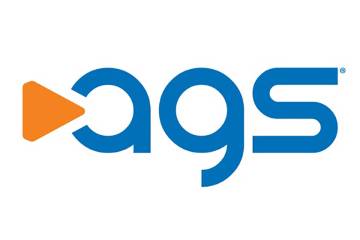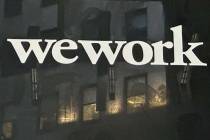New housing law does little to bring buyers, bankers closer
The Nevada Legislature’s Assembly Bill 300 was supposed to be a panacea for an ailing housing market.
It would treat the anxiety that banks said kept them from foreclosing. It would revive flatlined housing supplies that frustrated real estate brokers. And it would breathe life into opportunities for mortgage-backed buyers blitzed in bidding wars with cash investors.
But in the law’s first month, at least, the cure looks worse than the disease. What’s more, court cases and more new laws mean an unclear prognosis for foreclosures.
Start with what happened in June: New numbers from local title companies and the Clark County recorder show huge declines in foreclosure activity.
First-time notices of default, which kick off the foreclosure process, came to a virtual standstill. Local title companies reported fewer than 100 bank-issued notices on single-family homes in June, down from 1,443 in May and 1,662 in April, said Dennis Smith, president and CEO of analysis firm Home Builders Research.
It wasn’t what lawmakers and real estate brokers said they envisioned when they collaborated with banks to reform foreclosure laws, and the figures have advocates on all sides pointing fingers.
For sales agents, the statistics prove banks are manipulating the market.
“I reject the notion that there were ever legal barriers for banks to proceed with notices of default,” said Keith Lynam, legislative chairman of the Nevada Association of Realtors. “There are zero reasons for them not to file (notices) now. There are no more bogeymen to blame. They’re standing naked in the streets and it’s all on them.”
But if you want someone to blame, banks respond, keep looking at state policies. Sure, AB 300 changed a 2011 state law that required any banker signing default papers to have personal knowledge of who owns the promissory note — a tough mandate given the way the financial industry bundled and sold loans. Regardless, a new law is a new law, said Bill Uffelman, president and CEO of the Nevada Bankers Association.
“Every time the law changes, a financial institution’s legal department has to sign off on the changes,” Uffelman said. “Basically, they have to write a new script on how they do things. They’re still digesting the new standards.”
June wasn’t the first time notices of default tumbled. Monthly filings dropped from 11,000 to just under 4,000 in the 18 months before 2011’s Assembly Bill 284 took effect, said Marcus Conklin, the former state legislator who wrote the bill. They fell to fewer than 100 in October 2011, when it kicked in. But they ticked up steadily in 2012 and 2013, hitting a post-AB 284 high of nearly 1,700 in April.
Conklin, now associate director of UNLV’s Lied Institute for Real Estate Studies, said both the 2011 falloff and June’s decline trace back to banks’ taking time to understand fresh rules.
“Banks are going to look at it. And even when they look at it, Nevada’s a small market, and it may not be a priority for them today,” Conklin said. “The fact is, any time banks take action against a homeowner, they assume liability. It’s incumbent upon them to go through potential scenarios to make sure they comply with the law.”
Lynam sees something more sinister. He said he believes banks are taking advantage of changes in federal regulations. Before the recession, a mortgage became a bad asset the minute the payment was late. Post-downturn, banks don’t have to write off a loan until they repossess the property. There’s no other reason banks didn’t file tens of thousands of notices of default in June, as soon as AB 284’s restrictions lifted, he said.
Actually, there are plenty of reasons, Uffelman said. For starters, the state Supreme Court on June 5 heard arguments over whether Nevada Attorney General Catherine Cortez Masto has the right to hire a private, out-of-state law firm to negotiate settlements in foreclosure-processing complaints. The court’s decision could affect foreclosure practices.
“Banks may just be saying, ‘Let’s see what’s going to happen here,’” said Frank Nason, president of local sales and marketing company Residential Resources.
And that’s before you consider pending lawsuits over whether homeowners associations can wipe out banks and other first mortgage holders if they foreclose for late assessments.
Plus, more state laws are on the way. Senate Bill 321, which takes effect in October, will change timelines for filing notices of default. And Senate Bill 278, effective June 1, modifies the foreclosure process on abandoned properties.
“Banks have to take a global view of these issues and create a plan,” Conklin said. “Stopping (foreclosures) can happen on a dime. Starting does not. They want to protect themselves.”
So expect notices of default to trickle onto the market the next few months, as banks test the waters with small samples of homes, Conklin and Uffelman said.
Dave Tina, president of the Greater Las Vegas Association of Realtors, said he expects foreclosures to pick up as banks adjust. He said it wouldn’t surprise him if foreclosures jumped from their June sales share of 9 percent to as much as 15 percent in the next few months, as banks go after homeowners who haven’t paid in several years.




























